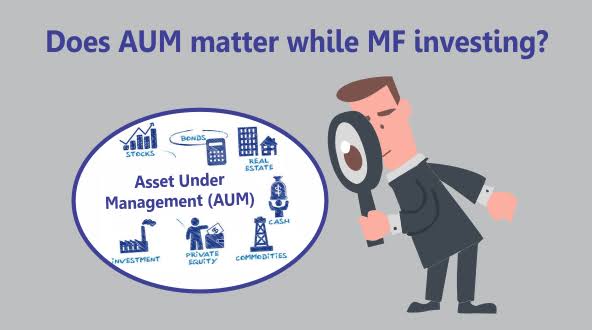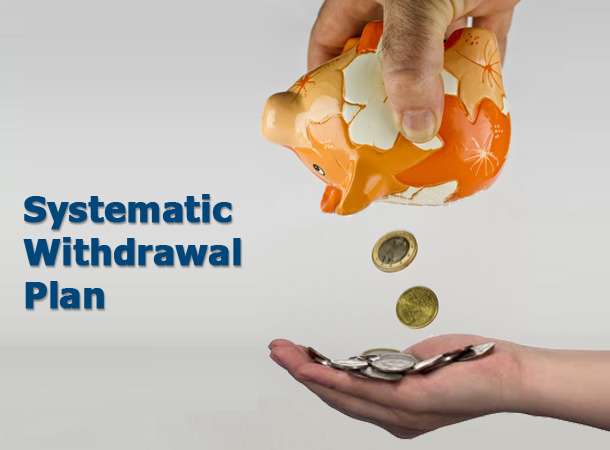
HYBRID FUNDS A BALANCED APPROACH TO INVESTING!!
Updated on 23-12-2019
Individuals often aim for a balanced approach to life. To help individuals achieve a balanced approach to investing, there are various mutual fund schemes that invest across asset classes. These schemes are known as hybrid funds.
Hybrid funds also known as Balanced Funds or asset allocation funds are funds that invest in both, equity and debt, these schemes provide maximum diversification benefits. It is a well known fact that different asset classes perform differently in different market cycles and tend to move in opposite directions, thus being present in both equity and debt helps achieve diversification and reducing the overall risk of the portfolio.
How does a hybrid mutual fund work?
Hybrid mutual funds invest across different asset classes, aiming to minimize risk and establish capital appreciation. A well-managed hybrid mutual fund scheme (of any kind) aims to generate income in the short term and capital appreciation in the long term - through a well-planned distribution of the investment corpus across different asset classes. For long-term capital appreciation, the scheme will invest in equity stock of companies, and for short-term income generation, the scheme will invest in debt instruments and government bonds.
What are the types of hybrid mutual funds?
There are different types of hybrid mutual fund schemes based on asset allocation:
Equity-oriented hybrid funds: When the fund manager invests 65% or more of the fund’s assets in equity and rest in debt and money market instruments, it’s called an equity-oriented fund. The equity component of the fund comprises of equity shares of companies across industries like FMCG, finance, healthcare, real estate, automobile, etc.
Debt-oriented balanced funds: The debt component of the fund constitutes the investment in fixed-income like government securities, debentures, bonds, treasury bills, etc. An asset allocation of 60% or more in debt and rest in equity is called a debt-oriented fund. For the sake of liquidity, some part of the fund would also be invested in cash and cash equivalents.
Balanced Funds: Balanced Funds invest at least 65% of their portfolio in equity and equity-oriented instruments. This allows them to qualify as equity funds for taxation. It means that gains over and above Rs 1 lakh from balanced funds held for.Over one year are taxable at the rate of 10%.The rest of the fund’s assets goes to debt securities and cash reserves. So, conservative investors can benefit from the return-earning capacity of equities without taking too many risks. The fixed income exposure to balanced funds helps in mitigating equity-related risks.
Monthly Income Plans: These are hybrid funds that invest predominantly in debt instruments. A monthly income plan (MIP) would generally have 0-35% exposure to equities. This would allow it to generate higher returns than regular debt funds. MIPs provide regular income to the investor in the form of dividends. An investor can choose the frequency of dividends, which can be monthly, quarterly, half-yearly, or annually. MIPs provide regular income to the investor in the form of dividends. An investor can choose the frequency of dividends, which can be monthly, quarterly, half-yearly or annually. MIPs also come with the growth option – they let the investments grow in the fund’s corpus. Hence, an MIP is not a small monthly income investment. Do not let the name mislead you. They are hybrid funds that invest mostly in debt and some amount of equities.
Dynamic Asset Allocation/Balanced Advantage Fund: An open-ended scheme which has the flexibility to invest between 0%-100% in either equity or debt. This type of fund will aim to sell equity in overvalued market conditions and move into debt. It will correspondingly increase its equity exposure in undervalued markets and reduce debt exposure.
Arbitrage Funds: These funds simultaneously purchase and sell the same shares in different markets, exploiting the difference in trade value of the shares to generate profitable gains. Shares are purchased in the cash market and simultaneously sold in the futures market, making use of the price differential to create a profit.
How do arbitrage funds work?
The cash market trades on the current value of stocks at their spot price. This means that if an investor purchases Rs.5, 000 worth of equities in the cash market, he immediately owns the equivalent shares in the target company as soon as the trade is completed. These shares are bought at the spot price.
The futures market (or derivatives market) reflects the perceived (or projected) value of a stock on a certain date in the future (based on calculations and projections). The stock purchased and sold in the futures market only changes hands on the maturity date of the contract.
Thus the difference in price of the same stock in these two markets allows arbitrage fund managers to generate a profit.
Who should invest in Hybrid Funds?
Hybrid schemes have a lot to offer beginners and well as seasoned investors.
Hybrid mutual funds have been designed and subcategorized in order to cater to the widest range of potential investors.
New investors, i.e., those new to the world of mutual funds can figure out their risk profile and investor profile by looking through and studying hybrid mutual fund schemes, as these schemes have a little bit of everything. New investors can gain a deep understanding of mutual fund investments during their hybrid scheme investment process. Call us; we’d love to take you through the process!
Seasoned investors, i.e., those who have been investing for some time regardless of positive or negative gains, can also benefit greatly from the right hybrid fund scheme. Knowing one’s risk profile and goals are essential to successful investing, and hybrid schemes lay out their goals and investment mandate in the offer document.
Hybrid mutual funds are ideal for a wide variety of investors, risk profiles, and investment profiles.
There are equity-oriented schemes for the risk-taker and debt-oriented schemes for the risk-averse. Debt-oriented hybrid funds can be used as monthly income generating schemes for those that want to establish an alternate source of income, and there are arbitrage schemes for low-risk investors who want stability from equity.
Any person who wishes to find a good place to enter the world of mutual fund investments must check out hybrid mutual funds.
Why invest in hybrid mutual funds?
Ideally, you’d invest in hybrid funds if you wish to add a huge amount of portfolio diversification to your existing portfolio. Hybrid fund schemes are also a safe bet for new investors - as they efficiently allocate funds in the right proportion between asset classes and industries - based on the investment mandate and the fund type.
Active risk management, portfolio diversification, and asset allocation are why most people invest in hybrid mutual fund schemes.
Ways to invest in hybrid mutual funds:
The actual mutual fund investment process can be initiated and maintained in two methods:
.png)
- Lump Sum Investing - Lump Sum Mutual Funds is for when you wish to invest your corpus (money for investing) at one shot.
- SIP - Systematic Investment Plan is for when you wish to invest small amounts of money at regular intervals for a specific tenure. For example, you can set it up to auto-deduct Rs. x two days after you get your salary, for the next 6 months. GIIS Financials support staff can help you find the best scheme in which to do this. But this approach cannot be taken for investments in fixed maturity plans - as the investment has to be done during the initial offer period only.
Best Hybrid Mutual Funds to Invest in 2019
|
FUND NAME |
1 YEAR RETURNS |
3 YEARS RETURNS |
5 YEARS RETURNS |
|
Adtiya Birla SL Equity Hybrid’95 Fund (G) |
0.60% |
11.72% |
14.62% |
|
HDFC Equity Hybrid Fund (G) |
2.86% |
14.35% |
16.24% |
|
ICICI Pru Balanced Advantage Fund (G) |
5.21% |
12.02% |
12.33% |
|
Kotak Equity Savings Fund (G)h |
6.17% |
8.95% |
N/A |
|
ICICI Pru Regular Savings Fund (G) |
8.06% |
11.21% |
11.64% |
Keep in mind the greatest strength of hybrid funds -- the ability to diversify with just one mutual fund. This is why beginners can use hybrid funds to get started investing. This diversification quality also allows for use as a core holding in a portfolio of mutual funds or ETFs.
You can use GIIS Financial tools or Our Android App for Investment, tracking and Asset allocation planning.
*Mutual Fund Investments are subject to market risk, read all scheme related documents carefully.
Share On















0
Comment